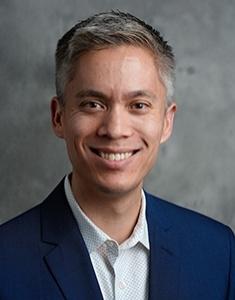
The goal of the Children’s Health & Discovery initiative (CHDI) is to foster multidisciplinary and innovative research that will positively impact childhood and lifelong health. Efforts in four key research focus areas (genes and biology, physical environment, social and economic factors, and health and behavior needs) will inform prevention, risk screening, and treatment, as well as provide training opportunities for the next generation of pediatrician-scientists to learn from Duke’s cadre of experts. As part of our goal of fostering multidisciplinary collaborations, the CHDI is holding seminar/brainstorming sessions, which we’ve termed “Great Minds Think for Kids”. These sessions will include a 40-minute research-in-progress talk from a guest speaker, followed by a 40-minute brainstorming/group discussion session led by the guest speaker and a member of the CHDI scientific leadership.
Details about the April seminar/brainstorming session follow:
Date: April 21, 2020
Time: 12:00 pm to 1:00 pm
Location: WebEx
https://dukemed.webex.com/meet/cc669
1-650-479-3207 Call-in number (US/Canada)
Access code: 739 180 034
Seminar Title: “Leveraging genomics and patient-derived pluripotent stem cells to identify the cause of unexplained sudden death in infants and children"
Speaker: Andrew Landstrom, MD, PhD
Assistant Professor of Pediatrics and Cell Biology
Division of Cardiology
Andrew Landstrom, MD, PhD is a pediatric cardiologist physician-scientist who explores the genetic and molecular mechanisms of sudden cardiac death in infants, children, and young adults. He completed an MD and PhD at the Mayo Clinic College of Medicine where he explored the genetic causes of cardiomyopathies and heritable arrhythmias. He completed pediatrics residency, pediatric cardiology fellowship, and an advanced fellowship in pediatric electrophysiology at Texas Children’s Hospital at Baylor College of Medicine. There, he also completed a postdoctoral research fellowship in cell and molecular physiology. He subsequently joined Duke’s Department of Pediatrics as a cardiologist specializing in the care of children and families with heritable arrhythmias and sudden-death syndromes. He also specializes in identifying the cause of unexplained sudden death in the young and identifying at-risk family members after a death in the family. His lab identifies novel genetic loci associated with arrhythmia and cardiomyopathy development and determines molecular mechanisms of disease development.
If you have questions or need additional information, please contact Carter Crew at carter.crew@duke.edu.